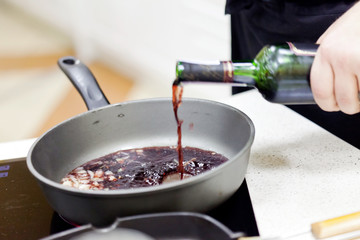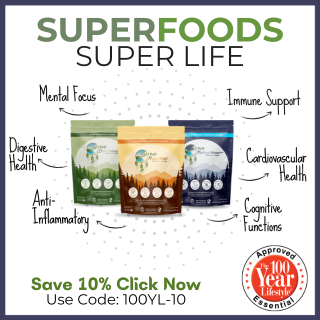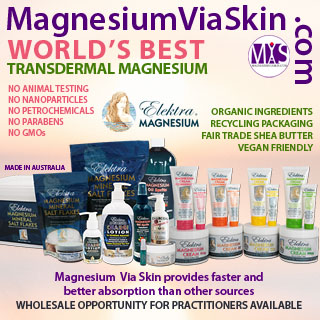A Diverse, Healthy Diet: Good Can Always Be Made Better
At The 100 Year Lifestyle, we are supporters of a diverse, healthy diet rich in organic foods that are both tasty and well prepared. We often share recipes with our readers and are always on the lookout for nutritional information that can and should be part of your 100 Year Lifestyle.
Lady Carla’s Wisdom
In addition to being the Executive Editor at Masters of Health magazine, Lady Carla Davis has a Master’s in Public Health specializing in Nutrition and is also a published author. We have asked Lady Carla to give us the lowdown on fats and oils with an eye to how we can take our favorite recipes and make them even healthier. We appreciate her sharing her wisdom with us!
Below is an excerpt taken from the Nourishing Basics Cookbook by Lady Carla Davis, MPH.
Substance or Pollutant?
Food is a substance that nourishes and promotes growth. If a substance does not nourish and promote growth, it is a pollutant to the body that should be avoided. Nourish your family and yourself with fresh, wholesome food that is as close as possible to its natural state.
Whenever possible, use organic ingredients. For fruits and vegetables, select fresh, tender, well-shaped products with bright colors. For protein, choose quality products that are either fresh or frozen. Frozen products from reputable companies are a good choice when fresh products are not available. To preserve enzymes and nutrients never over-cook, sear, or burn anything.
Fatty Acids
Dietary fatty acids are available from two basic sources: animal and vegetable. Fatty acids are the building blocks of fats, much like amino acids are the building blocks of proteins. Fats are the most concentrated form of energy and provide many life-supporting functions. Fats are the major constituent of all cell membranes in the body and help protect against invading allergens, bacteria, and viruses.
Of the twenty fatty acids used by the body, only two (omega 3 and omega 6) cannot be manufactured by the body and must be supplied in balance on a daily basis. Thus, they are called essential fatty acids (EFAs). These EFAs (omega 3 and 6) in balance are necessary for brain and nerve development, along with maintenance of the heart, glands, and hormone production and balance.
However, too much omega 6 can cause a deficiency of omega 3 and promote tumor growth. All fats are mixtures of saturated, monounsaturated, and polyunsaturated fatty acids in different proportions. Each group is vitally important. It is not the fats themselves that are detrimental to health; it is the damage done in the refining process and the imbalances and/or deficiencies created.
Mono, Poly, Saturates?
Monounsaturates and saturates can be heated at low temperatures (below 160C/320F). Saturates such as coconut oil, real butter, and ghee can be used in mild cooking as long as they are not burned or rancid. Fats and oils become rancid quickly at room temperature. Thus, always refrigerate them.
Extra Virgin Olive oil, though mostly a monounsaturate, should not be used in normal cooking because of its omega 6 content. Instead, use cold-pressed, extra virgin olive oil, moderately for flavoring a dish (pasta, sauce, soup, salad, etc.) upon serving. Avoid “pure” or “light” olive oil and cheaper brands that secretly blend Canola oil with their olive oil.
Polyunsaturated oils oxidize rapidly when exposed to heat, light, and oxygen. Thus, NEVER cook with them; cooking can damage even the best of oils. Once damaged, they cause free radical damage in the body and become endocrine disruptors and carcinogenic.
Polyunsaturated flax seed oil is a good source of Omega 3 EFAs, but it should never be heated. It should be used only as an addition to a dish that is already cooked (soup and vegetables) or doesn’t require cooking such as salad.
Unfortunately, most commercial oils are damaged in the refining and packaging (clear containers) process. Thus, avoid highly processed, damaged, hydrogenated, and GM/GE fats and oils. Also, avoid fried foods and food products (chips, fries, etc.) containing or prepared with damaged vegetable fats/oils, such as Canola, peanut, soy, corn, and high oleic safflower oils. Use only properly processed fats and oils from reliable sources such as Omega Nutrition.
Higher Temperatures
For cooking, use poultry broth, pure water, organic wine, or a small amount of butter, ghee, or coconut oil, which can take higher temperatures than other oils.
Read the small ingredients section on the food label of every product you buy. Research the companies behind the products. And remember, fats/oils can be damaged by six factors: heat, hydrogenation, oxygen, light, homogenization, and genetic modification (GMO). Therefore, avoid all fats/oils such as margarine, spreads, and vegetable oils that have been damaged by any of these six processes.
Culinarily curious? Interested in trying something new? Check out our 100 Year Lifestyle Recipes. Upgrading your approach to wellness? Find a chiropractor near you to be a key member of your health and wellness team!
- SHARE THIS POST








